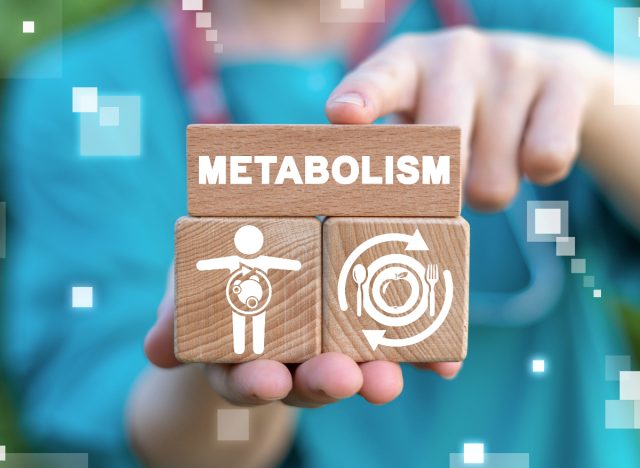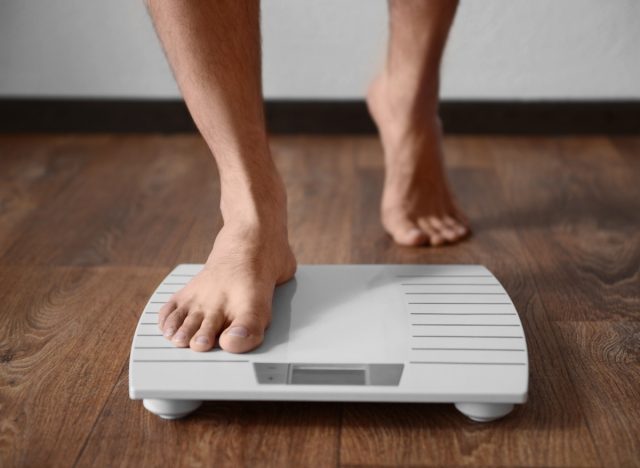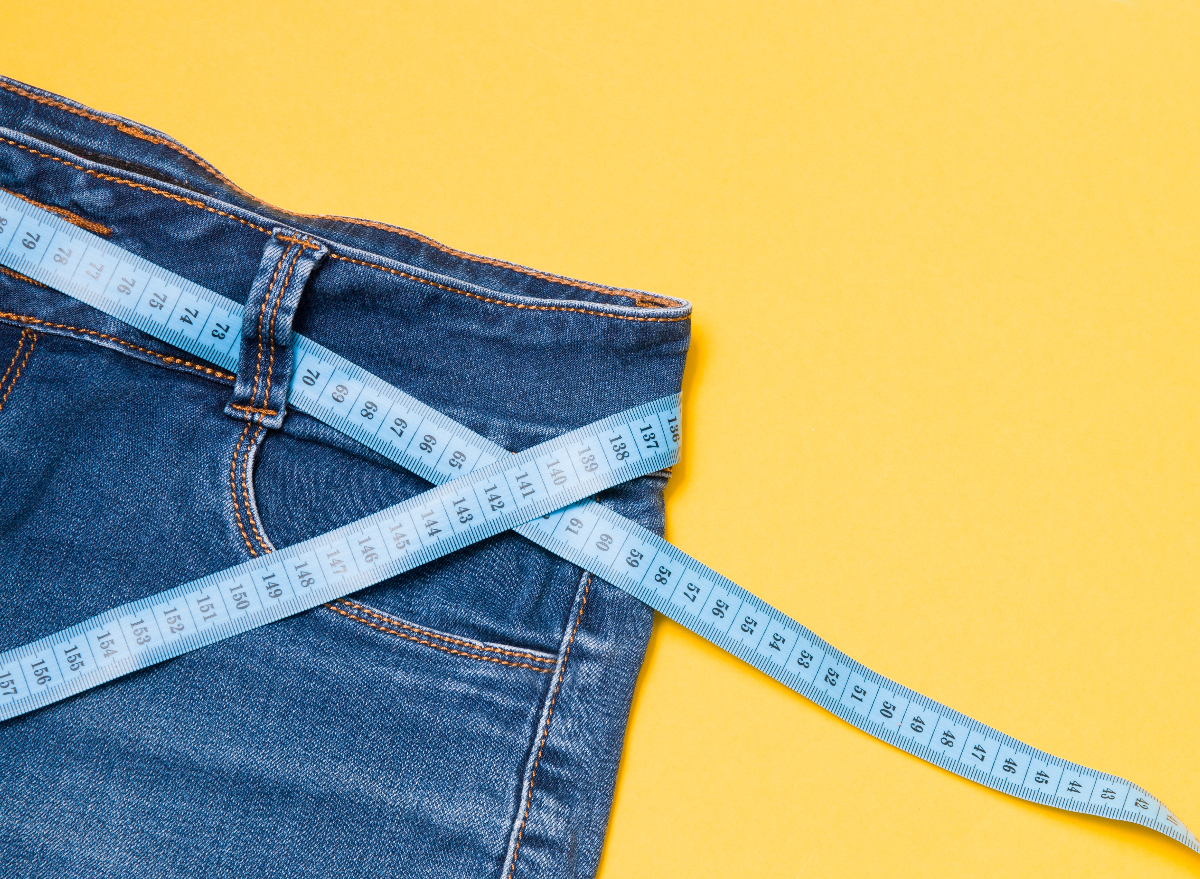It’s no secret that your body endures many changes as you get older. One of the most challenging things to accept is that it’s harder to lose weight as you age. The funny thing (Well, not so funny!) is it’s oh-so-easy and fast to put on extra pounds. Know that you’re certainly not alone. We spoke with the experts to learn why it’s more difficult to see the scale move in a favorable direction. They also break down how you can address losing weight as you grow older.
Now, let’s delve into the specifics. Keep reading to learn more, and when you’re finished, be sure to check out the 10 Best Sam’s Club Foods to Buy for Weight Loss.


Just as your body changes with age, so do your hormones. Amy Shapiro, MS, RD, CDN, the founder and director of Real Nutrition, a New York City-based private practice dedicated to healthfully and successfully guiding clients to their optimal nutrition, weight, and overall wellness, explains, “Shifting in hormones occurs in both men and women. Women experience a drop in estrogen levels during menopause, associated with an increase in abdominal fat. Men experience a drop in testosterone level, reducing its regulatory effects on fat distribution, muscle strength, and muscle mass.”
Men and women can also experience a decrease in growth hormones as they age. A major function of growth hormone is preserving muscle and strength, Shapiro tells us. This decline will also lower your resting metabolic rate.


You may notice with age that your sleep routine changes. It can take you more time to fall asleep, and you might wake up frequently throughout the night or even wake up earlier in the morning than you used to. “Sleep deprivation has an influence on the dysregulation of the neuroendocrine appetite control system, which changes metabolic rate,” Shapiro says. “There is an increase in ghrelin level–the hunger hormone–when sleep duration is restricted, which can lead to increased food intake and poor choices of energy-dense food.”


If you didn’t already know, after you turn 30, you start to lose muscle mass. As a matter of fact, research shows your muscle mass can decrease by as much as 3% to 8% every 10 years after hitting 30. This percentage is even higher once you pass 60 years of age.
“Naturally as you age, you lose muscle mass over time,” Shapiro explains. “Because muscle uses more calories than fat mass, the calories you burn while resting also decline.” Needless to say, you need to stay on top of your muscle supply in order to drop weight.


Being physically active is good for the mind, body, and soul—and your weight loss efforts. This becomes increasingly true as you age. “In addition to muscle loss, the decline in muscular strength and endurance/stamina can lead to physical inactivity or decreased willingness to exercise,” Shapiro says.
READ RELATED: Outback Steakhouse Is Launching a Very Special “Throwback” Menu
So if you lead a more sedentary lifestyle, it’s time to fix that. Strength training, for example, is often overlooked, but it’s one of the most beneficial types of exercise you can include in your routine; it gets you moving and addresses the age-related muscle loss issue. “[Strength training] is essential in preventing muscle loss and maintaining muscle mass and strength, which will help maintain the resting metabolism. Sustaining muscle strength will also keep you active,” Shapiro stresses.


Your metabolism slowing down as you age is something Lisa Young, Ph.D., RDN, the author of Finally Full, Finally Slim, a nutritionist in private practice, and a member of our Medical Expert Board and Shapiro both address. According to Young, “Metabolism slows as we age due to reduced muscle mass, influenced by factors like [gender] and body size.”
What shall you do about this frustrating metabolism slow-down? Well, one way to address the issue is by controlling your portion sizes at mealtime. This can be accomplished by using smaller plates and bowls, along with being mindful of when you’re actually hungry and full.
“Portion sizes are equally important as what you are eating,” Shapiro tells us. “Excessive intake of anything, even protein, can turn into fat. Especially when metabolism slows down with age, it is even more important to keep track of how much you are eating. Ask yourself before taking the second if you need that or if it is just a craving.”


Reevaluate your lifestyle to make sure you’re being proactive and optimizing your chances for weight loss. For example, according to Young, regular exercise is important to kick up your metabolism and build muscle. We already touched upon the benefits of adding strength training to your routine, so be sure to do that ASAP!
It’s also crucial to follow a well-balanced diet that’s full of veggies, fruits, healthy fats, whole grains, and protein sources. “A plant-based diet [that’s] high in fiber, complex carbohydrates, lean proteins, and healthy fat, which make up a nutrient-dense diet, will keep you satiated longer in between meals,” Shapiro explains. “It is also low in saturated fat that mostly comes from high-fat animal proteins and products. When consuming too much saturated fat, it can create inflammation and drive up the ‘bad’ LDL cholesterol.”
One of the most surprising habits is to make sure you drink plenty of water. Being hydrated will improve your metabolism, make you feel full, and help you avoid consuming extra calories.
Above all, “identify what you can change,” stresses Shapiro. “There are physiological changes that you can’t control with aging, but lifestyle modification can always be your own decision. Starting with better nutrition planning and increased physical activity can make a difference.”








